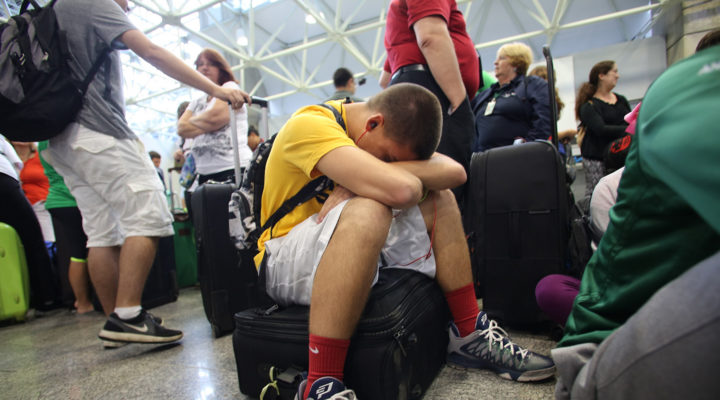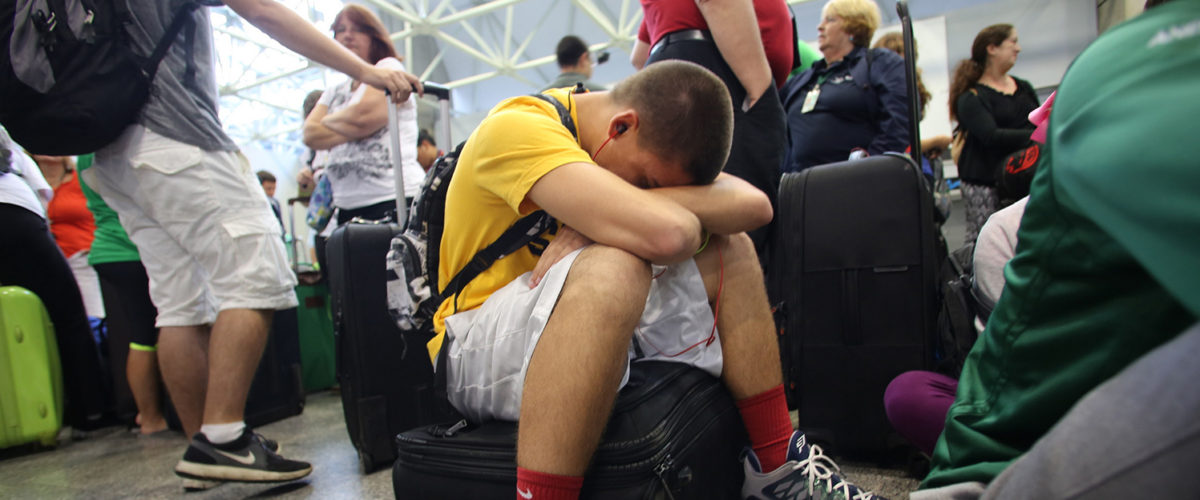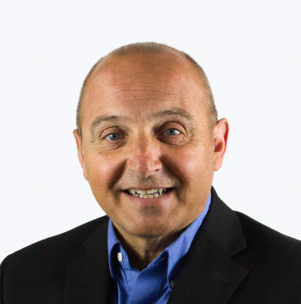Parents expect a lot from youth ministers.
Above all they want them to host safe gatherings where their kids can hang out with friends. At the same time they want their youth to learn how to say no to drugs, alcohol and pre-marital sex. Along the way they must be exposed to the theologically correct doctrines and practices needed to be a good (insert denomination here). And ministers are expected to (subtly) take parents’ sides in family disagreements.
“The reality is parents want it all,” said Carol Harston, the former minister to youth at Highland Baptist Church in Louisville, Ky.
The other reality, she said, is that youth ministers rarely have much time with students at all, given today’s fast-paced family and school life.
So, youth pastors tend to have a much narrower focus in their ministries.
It centers mostly on developing relationships with youth and guiding them to become disciples of Jesus Christ, said Harston, who recently stepped down as president of the Cooperative Baptist Fellowship Youth Ministry Network.
Getting parents on board with that requires communication.
“It’s about caring for parents and reminding them what the church is and what we are called to do,” she said.
‘Their own set of priorities’
But that may be a tall order according some new research.
The Barna Group, in partnership with Youth Specialties and YouthWorks, recently released a study which found that parents and ministers share widely divergent goals for youth ministry.
Senior pastors and youth ministers are in agreement that discipleship and spiritual instruction is the purpose of youth ministry with, respectively, 71 percent and 75 percent strongly agreeing.
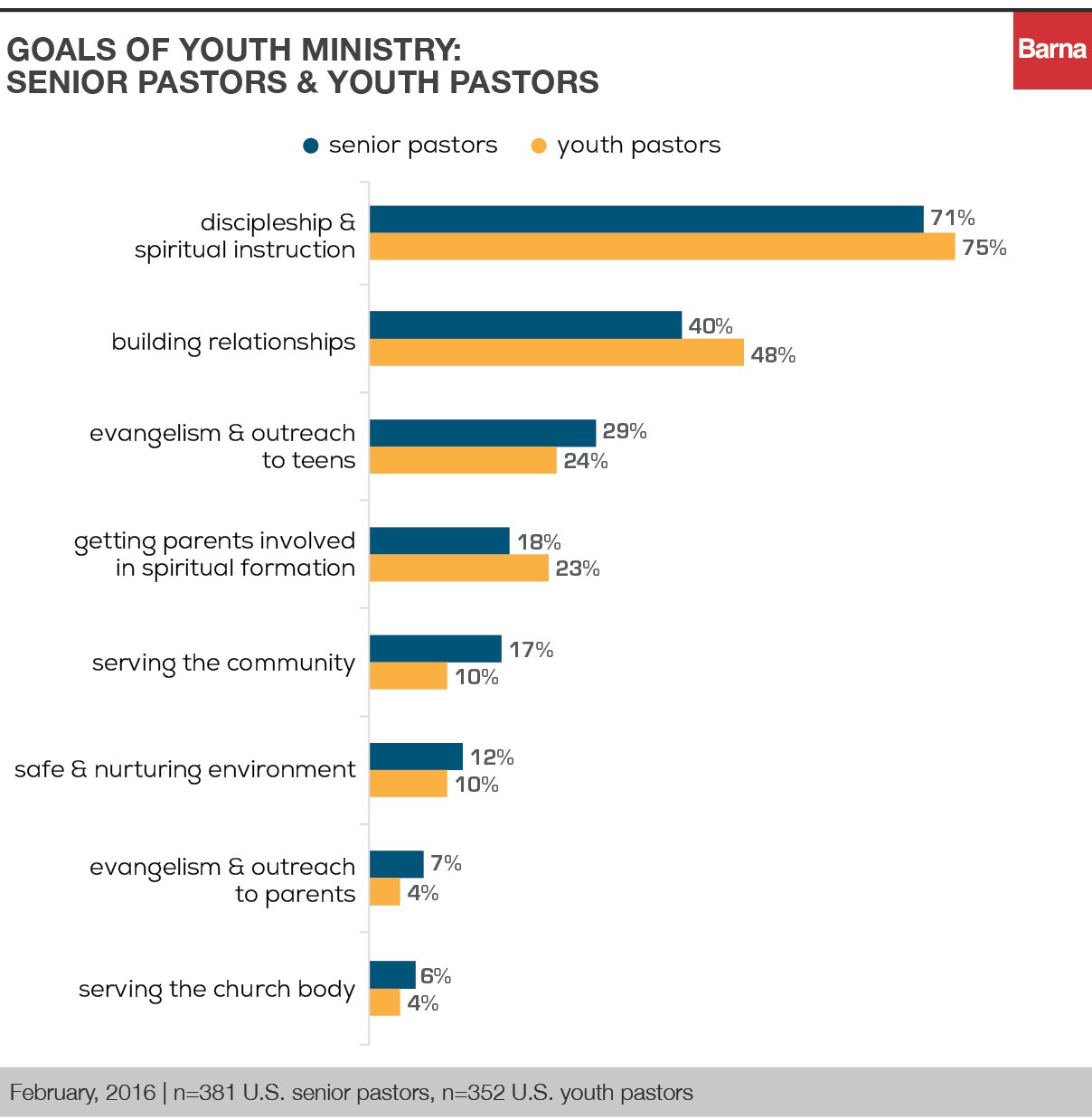 Building relationships was a secondary youth ministry goal for both kinds of ministers: 40 percent for senior pastors, and 48 percent for youth ministers.
Building relationships was a secondary youth ministry goal for both kinds of ministers: 40 percent for senior pastors, and 48 percent for youth ministers.
Other categories, from evangelism, outreach and serving the community dropped off sharply down the scale.
But for parents, not only were the goals different from ministers but all of them are held in relatively high percentages.
Chief among them was providing safe spaces to explore faith: 69 percent of parents said that was very important to them. Building positive peer relationships was very important to 67 percent of parents while 58 percent said providing a place to bring friends was very important.
Other goals included offering career guidance and direction in life (56 percent), providing mentorship opportunities (53 percent) and outreach for unchurched teens (51 percent).
Barna also asked parents about their expectations for youth pastors. Disciplining teens (72 percent), helping youth navigate friend relationships (62 percent) and navigating family relationships (60 percent) rounded out the top three.
They were followed by warning teens about drugs and alcohol, teaching safe media use, talking about sex and dating and offering career guidance, Barna found.
“Parents have their own set of priorities when it comes to their kids’ youth ministry experience,” Barna said in its report, “Pastors and Parents Differ on Youth Ministry Goals.
“And … most parents have a hard time narrowing them down,” Harston said.
‘Make sure he doesn’t do drugs’
Several ministers told Baptist News Global that the Barna poll is on target. They testify to both spoken and unspoken parental assumptions that ministers to youth can — or should — be able to solve the social, spiritual and educational problems faced by young people.
“In our culture we go to specialists to solve things and the idea here is the youth minister is a specialist and kids are a problem to be fixed,” Harston said.
Parents often believe that youth ministers have far more influence over their children than they really do, she said.
“Parents come to you and say ‘talk to my youth — but don’t let them know I asked you to.’”
Those requests usually come with some pretty tall orders, said Ben Brown, minster of discipleship, families and youth at First Baptist Church in Waynesboro, Va.
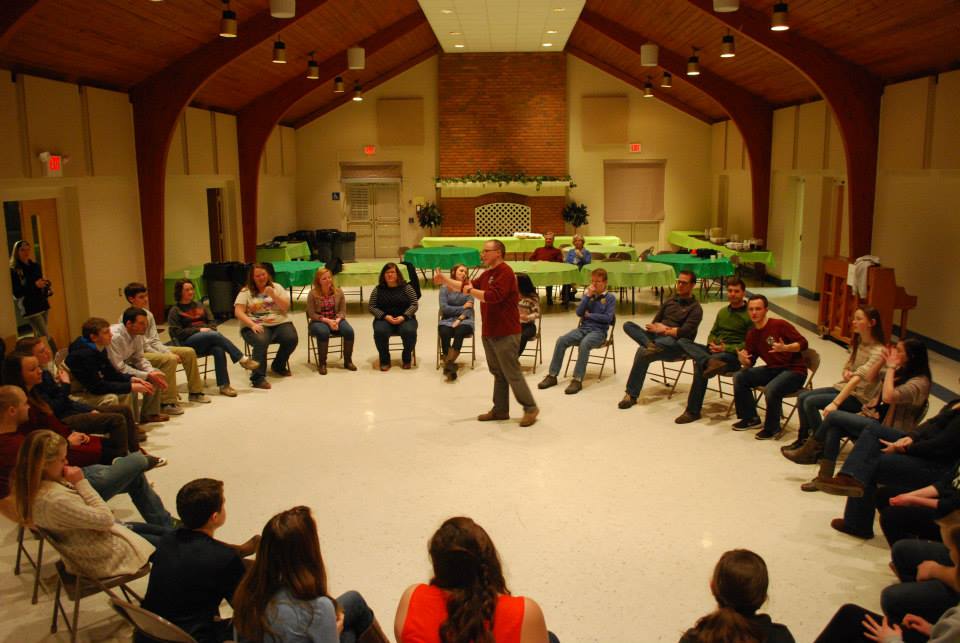
Ben Brown leads youth at First Baptist Church in Waynesboro, Va. through a game during a Disciple Now weekend in 2015. (Photo/Courtesy of Ben Brown)
“They’ll say ‘I want my kids to have good morals and to be productive members of society,’” he said.
In youth group, parents often want their child to learn safe driving habits.
“’Can you tell him not to text and drive? He won’t listen to me,’” is a common request, Browns said. “’And just make sure he doesn’t do drugs.’”
‘Opportunities for parents’
It isn’t much different on the international level.
The parental demand for youth group safety, as noted in the Barna study, is common around the world, said Randy Raus, president and CEO of Life Teen, a Catholic youth program used by 1,850 parishes in 31 nations.
“There is a mentality to have a good, safe place for teens — and we don’t dispel that,” said Raus, who is based in Atlanta.
But the core focus of Life Teen is on the spiritual development of youth through catechism, worship and service.
“We try to go deeper so there is a lifelong change,” he said. “We try to be bold — we want them to be saints.”
However, there is little conflict over these differing visions, Raus said, because parents are given multiple ways to participate in the program.
When students cover a certain theological, liturgical or other topic during a Life Teen gathering in their parish, parents are provided with related questions to ask their teens.
A new website and blogs will debut soon providing resources for the parents of teenagers. It’s often the case that some parents haven’t had the deeper education and conversion the ministry seeks in its youth, Raus said.
Parents can become core team members of Life Teen chapters and there is even parallel groups that provides ongoing catechism for the adults.
“So we try to create opportunities for parents to come along side,” he said.
‘We have stepped up our game’
But some parents are adamant that the safety of youth be a top priority, and David Burroughs is one of them.
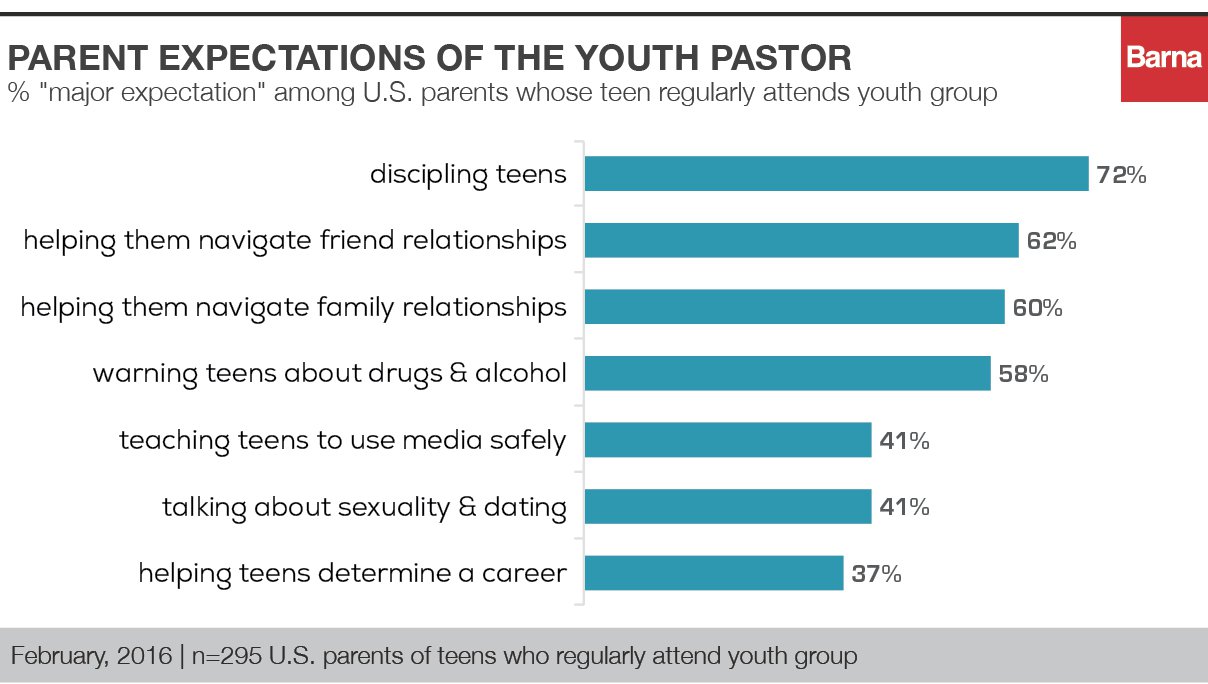 “As a parent of seniors in high school, I’m concerned about the safety of children, as well,” said Burroughs, the president and founder of Passport, Inc., a national summer camp ministry.
“As a parent of seniors in high school, I’m concerned about the safety of children, as well,” said Burroughs, the president and founder of Passport, Inc., a national summer camp ministry.
“I side with the parents” in the Barna survey, he said.
And Passport has the security focus to prove it.
It has lockdown procedures for active shooter situations for Passport camps hosted on college campuses. The ministry also employs a system of background checks for volunteers and employees.
Passport requires one adult for every six students at a camp or mission site.
“We have stepped up our game as far as safety policies go,” Burroughs said.
Still, Passport campers and mission groups regularly venture into impoverished areas. Burroughs said parents seem to understand that.
“There is a certain amount of risk going and serving, but Jesus calls us to serve,” he said.
But it’s important for ministers who are confronted by parents on issues like these to think of families and ministers as a team, said Brown.
“In those conversations it’s essential to listen and be open to saying ‘what are the resolutions we can find?’”
It’s natural that parents want to know their kids are emotionally safe in an environment free from bullying or being teased.
It’s about meeting parents in the middle, according to Harston.
“You have to meet parents where they are and you expect parents to meet you where you are.”

